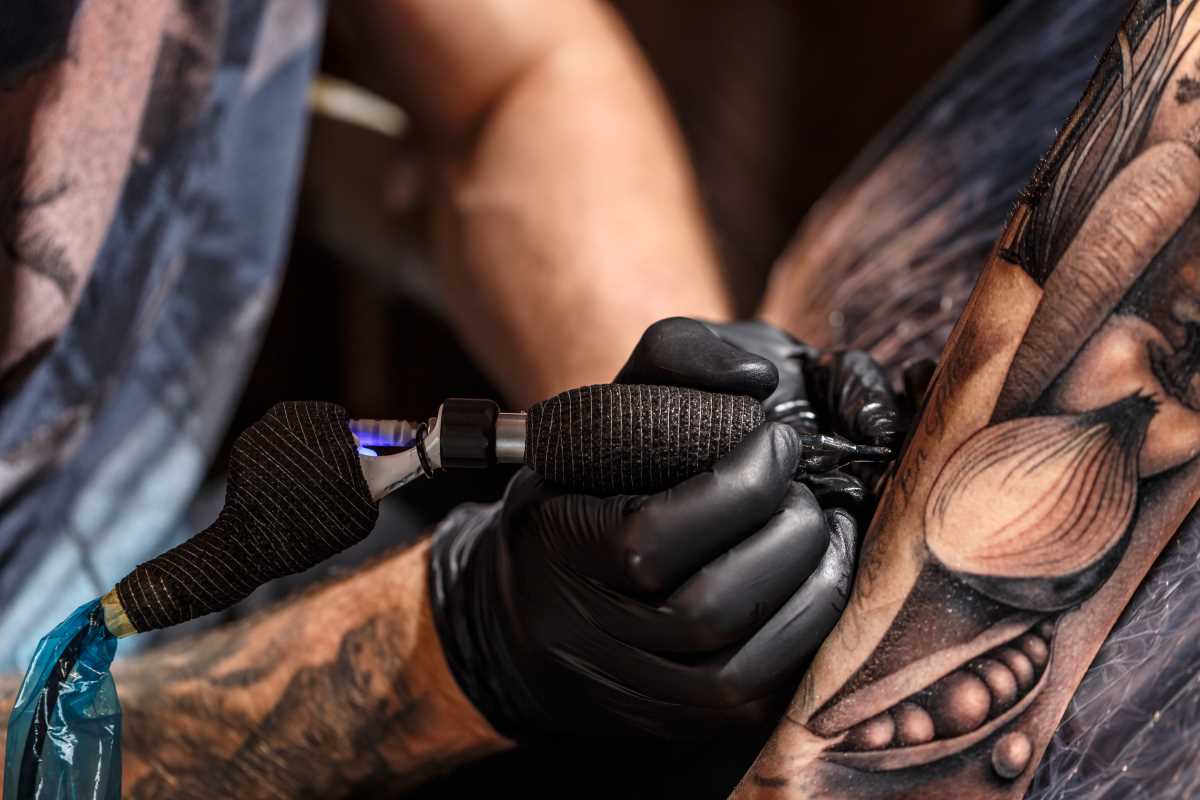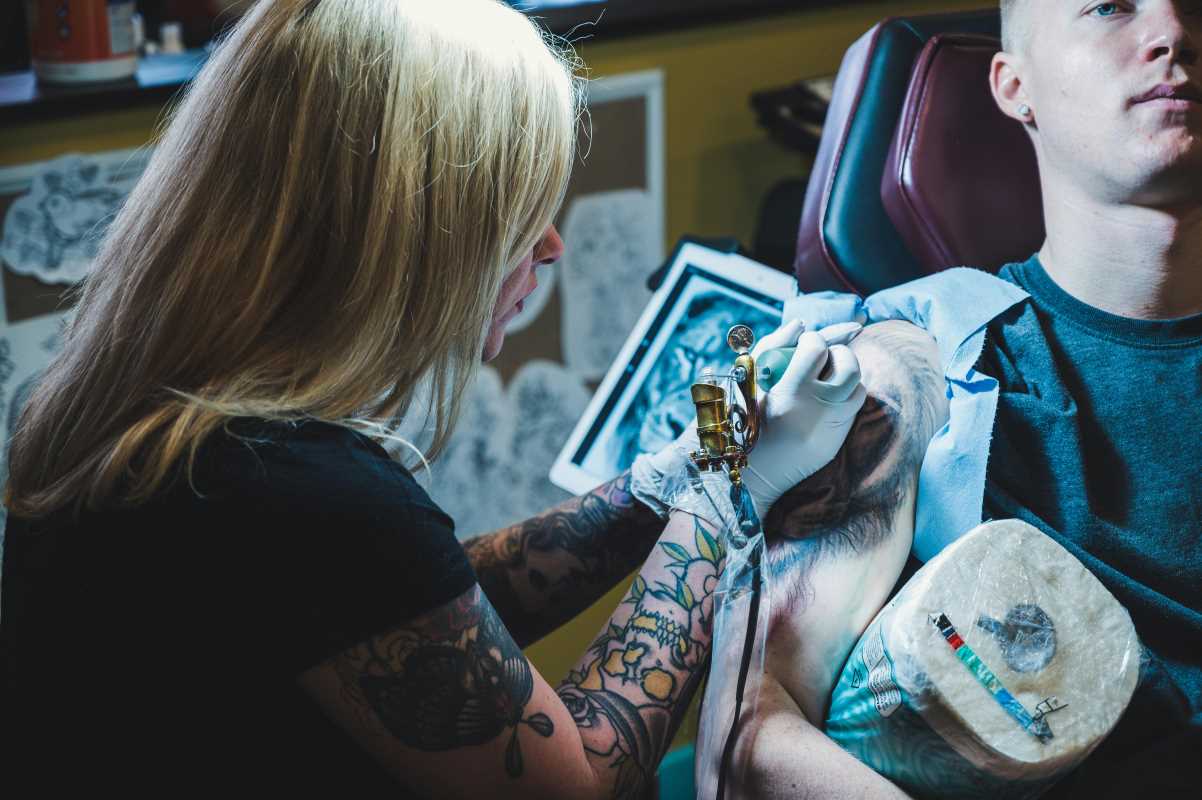Tattooing is a craft rooted in precision, creativity, and personal connection. For those passionate about turning flesh into a canvas, becoming a tattoo artist can be one of the most rewarding career paths. But the road to success in this industry demands more than just artistic talent. It requires dedication, training, and a deep understanding of the practice’s technical and hygienic aspects.
If you’re dreaming of making a name for yourself in the tattoo world, this guide will outline what it takes to build a successful career as a tattoo artist. From honing your skills to navigating the business side of tattooing, here’s everything you need to know.
1. Developing Artistic Talent
Start With a Strong Artistic Foundation
At its core, tattooing is about creating art. A successful tattoo artist is first and foremost a skilled artist, adept in drawing and design. Building an artistic foundation is essential before picking up a tattoo machine.
How to Begin:
- Study Traditional Art: Work on skills like shading, proportion, and anatomy through practice and dedicated art classes.
- Experiment With Styles: Explore everything from realism to traditional tattoo designs so you can develop versatility as an artist.
- Fill Sketchbooks: Getting comfortable with different textures, lettering, and compositions on paper is a great place to start.
The Power of Observation
Tattoo artists rely on sharp observation skills, particularly when working on custom designs that fit a client’s vision. Pay attention to the patterns and details in nature, architecture, or other artwork to refine your creativity.
Building a Portfolio
Your portfolio is your introduction to the tattoo world. Prospective clients and mentors often judge your potential based on the quality of your artwork.
- Include 10 to 20 polished pieces that showcase a range of themes and styles.
- Focus on designs that translate well into tattoos, such as clean lines, bold contrasts, and balanced compositions.
- Update your portfolio regularly as your skills progress.
2. Securing an Apprenticeship
Why Apprenticeships Are Essential
Tattooing is not a skill that can be mastered from online tutorials. It’s a hands-on craft, and learning under an experienced artist ensures you develop both the artistic and technical skills needed to succeed. Apprenticeships also cover topics like sterilization and hygiene, which are critical to tattooing.
Finding the Right Mentor
- Research reputable tattoo studios in your area.
- Attend conventions or follow established artists online to find potential mentors.
- Be prepared to show your portfolio and demonstrate enthusiasm for learning.
- Be patient and persistent. Landing an apprenticeship might take time, but it’s worth the effort.
What to Expect During an Apprenticeship
Apprenticeships often last 1 to 3 years and include a mix of observing, learning, and eventually tattooing under supervision. Some responsibilities in the early stages may include cleaning equipment, preparing stations, and shadowing your mentor. While it might not be glamorous at first, this is an invaluable learning period.
3. Mastering Hygiene and Safety Standards
The Importance of Cleanliness
Tattooing isn’t just about artistry; it’s also a medical-adjacent practice. Maintaining strict hygiene protocols is critical to prevent infections and protect both clients and artists.
Key Hygiene Practices
- Sterilization: Learn how to sterilize tattoo machines, needles, and workstations. Autoclaves and disposable equipment are commonly used to ensure safety.
- Personal Protective Equipment: Use gloves, masks, and protective barriers during sessions.
- Cross-Contamination Prevention: Avoid touching surfaces or tools that could expose clients to harmful bacteria or pathogens.
- Skin Prep: Always clean and disinfect the client’s skin before starting a tattoo.
Most states or countries require tattoo artists to complete a bloodborne pathogens certification. Familiarize yourself with your local regulations to ensure compliance.
4. Investing in the Right Tools
Essential Tattoo Equipment
Starting your tattoo career means acquiring and maintaining the right equipment. Here’s what you’ll need once you begin tattooing professionally under supervision or as a licensed artist:
- Tattoo Machine: Choose between coil machines, rotary machines, or pen-style machines based on your preference.
- Needles and Cartridges: Understand different types of needles (liners, shaders) and how to use them appropriately.
- Ink: Invest in high-quality tattoo inks that are safe and long-lasting.
- Stencil Supplies: Use thermal printers or transfer paper to create precise stencils of your designs.
- Hygiene Supplies: Stock up on gloves, disinfectants, and skin-cleaning products.
Quality Over Cost
While the initial cost of equipment may seem high, prioritizing quality ensures better performance and client satisfaction. Cheap equipment can compromise safety and results, so make investments wisely.
5. Developing a Unique Style
Why Style Matters
Every accomplished tattoo artist is recognized for their distinct style. Whether it’s fine-line work, vibrant neo-traditional designs, or intricate black-and-grey pieces, honing your niche allows you to stand out in a crowded industry.
How to Find Your Niche
- Experiment with various tattoo styles during your apprenticeship or on practice skins.
- Study iconic tattoo artists in the industry for inspiration.
- Consider your natural tendencies as an artist. Are you drawn to bold, graphic designs or delicate, intricate details?
Consistency in your work will eventually lead to a signature aesthetic, helping you build a loyal client base.
6. Networking Within the Tattoo Community
The Value of Connections
Networking is vital for both personal and professional growth. The tattoo industry thrives on word-of-mouth referrals, collaborations, and shared artistic inspiration.
Where to Network
- Conventions: Attend tattoo conventions to showcase your work, meet established artists, and learn about industry trends.
- Social Media: Platforms like Instagram are essential for showcasing your portfolio. Use hashtags and geo-tags to attract local clients or wider audiences.
- Collaborations: Partner with other artists to work on unique designs or themed tattoo events.
Building relationships with clients is just as important. Listen attentively to their ideas, stay professional, and deliver high-quality work to earn glowing reviews and referrals.
7. Understanding the Business Side of Tattooing
Managing Finances
Tattooing is not just a craft; it’s a business. Whether you’re opening your own studio or working as an independent contractor, understanding basic financial management is key.
- Track income and expenses carefully.
- Set aside money for taxes, equipment upgrades, and emergencies.
- Consider taking a basic business or accounting course to learn how to manage finances effectively.
Marketing Your Work
- Keep your portfolio updated and accessible online.
- Build a strong social media presence by sharing your latest work, reviews, and behind-the-scenes glimpses into your creative process.
- Offer promotions or participate in flash sale events for consistent visibility.
8. Staying Inspired and Dedicated
Tattooing is a demanding career that requires continuous growth and resilience. Surround yourself with inspiring work, challenge your abilities, and remain open to constructive feedback. Remember why you started this journey and use those motivations to fuel your passion.







